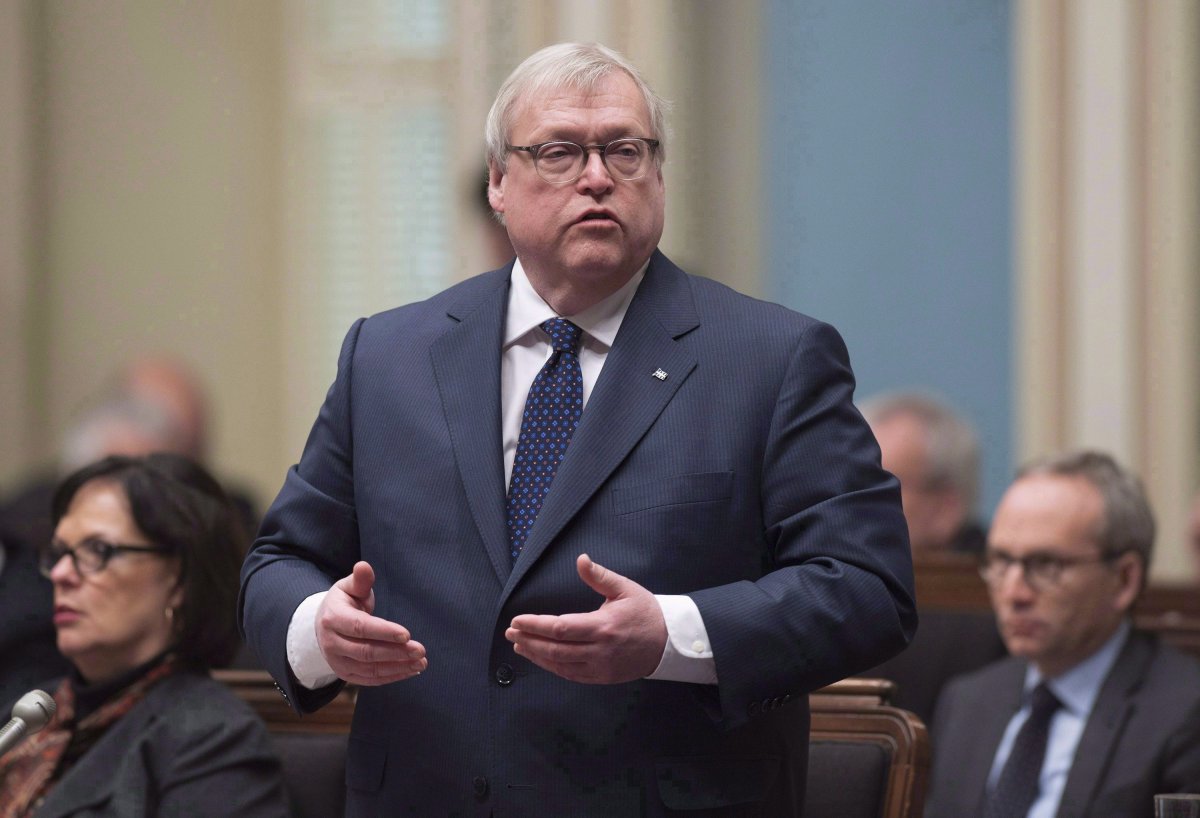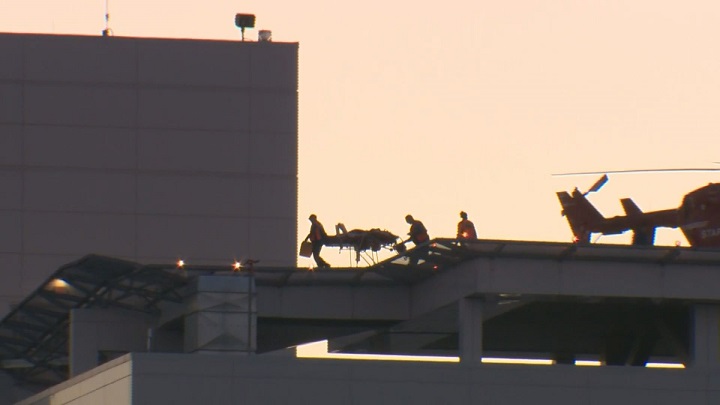Quebec’s health minister announced on Friday an 18-month pilot project to transfer patients between hospitals by helicopter, in what he said could be a first step towards establishing a more complete air ambulance service in the province.

Gaétan Barrette said the service, which will begin in September, will transport urgent care patients from six facilities in three regions to the Hopital du Sacre-Coeur in Montreal.
READ MORE: Quebec government to allow parents on air ambulance flights with kids
The $3-million annual price tag includes the direct and indirect costs of the project as well as an evaluation to see if such a service could be made permanent.
It also includes establishing helicopter landing areas at the regional facilities, which are in the Lanaudiere and Laurentides regions north of Montreal, and the Mauricie region to the northeast.
The government is partnering with air ambulance provider Airmedic as well as the Quebec-Universite Laval hospital network, which will oversee the operation of the project.
READ MORE: Quebec minister under fire from First Nations groups for comments on air ambulances
Barrette says he expects about 175 patients per year to be transported during the pilot period.

Get weekly health news
In April, the chief surgeon of the Montreal Canadiens hockey team criticized the province for its lack of helicopter ambulance services, noting the province would be unprepared to handle a tragedy such as the fatal bus crash in rural Saskatchewan that claimed 16 lives, many of them members of the Humboldt Broncos junior hockey team.
David Mulder said Quebec is the sole province in Canada and Montreal the only urban centre in North America without a helicopter program that can quickly transport seriously injured people to trauma care.
Move comes as Indigenous leaders call for Barrette’s resignation
While the pilot project only covers trips between hospitals, Barrette expressed hope on Friday that it could eventually be expanded.
“With this project, we want to evaluate the possibility of introducing a helicopter aeromedical transport service within our network,” he said in a statement.
“But before proceeding with the deployment of such a service, we want to ensure its relevance and efficiency in the context Quebecers, by evaluating the costs generated by each transport, with respect to the results and its clinical effectiveness.”
While the Quebec government has the use of a small fleet of ambulance airplanes, expanding the service to include helicopters will allow for better coverage, according to Airmedic’s vice-president of operations.
While conventional ambulances are used for short distances and airplanes are used for flights to remote regions, Carl Guerard says helicopters will mostly cover distances of between 75 and 275 kilometres.
The announcement comes a day after several Indigenous leaders called for Barrette’s resignation over comments he made about people who board medical emergency plane flights between remote northern villages and medical facilities.
In February, the government reversed a policy that forbade parents or guardians from accompanying their children on these flights.
READ MORE: Celebrations and controversy mark National Indigenous Peoples Day in Quebec
But in a recent audio recording obtained by Le Devoir and CBC Montreal Barrette is heard suggesting that within six months, there will be at least one case in which someone will be barred from boarding one of the planes because they are agitated, drugged or under the influence.
Barrette apologized repeatedly on Thursday but insisted to reporters those comments were about air ambulance rules in general and not a direct reference to Indigenous communities.



Comments